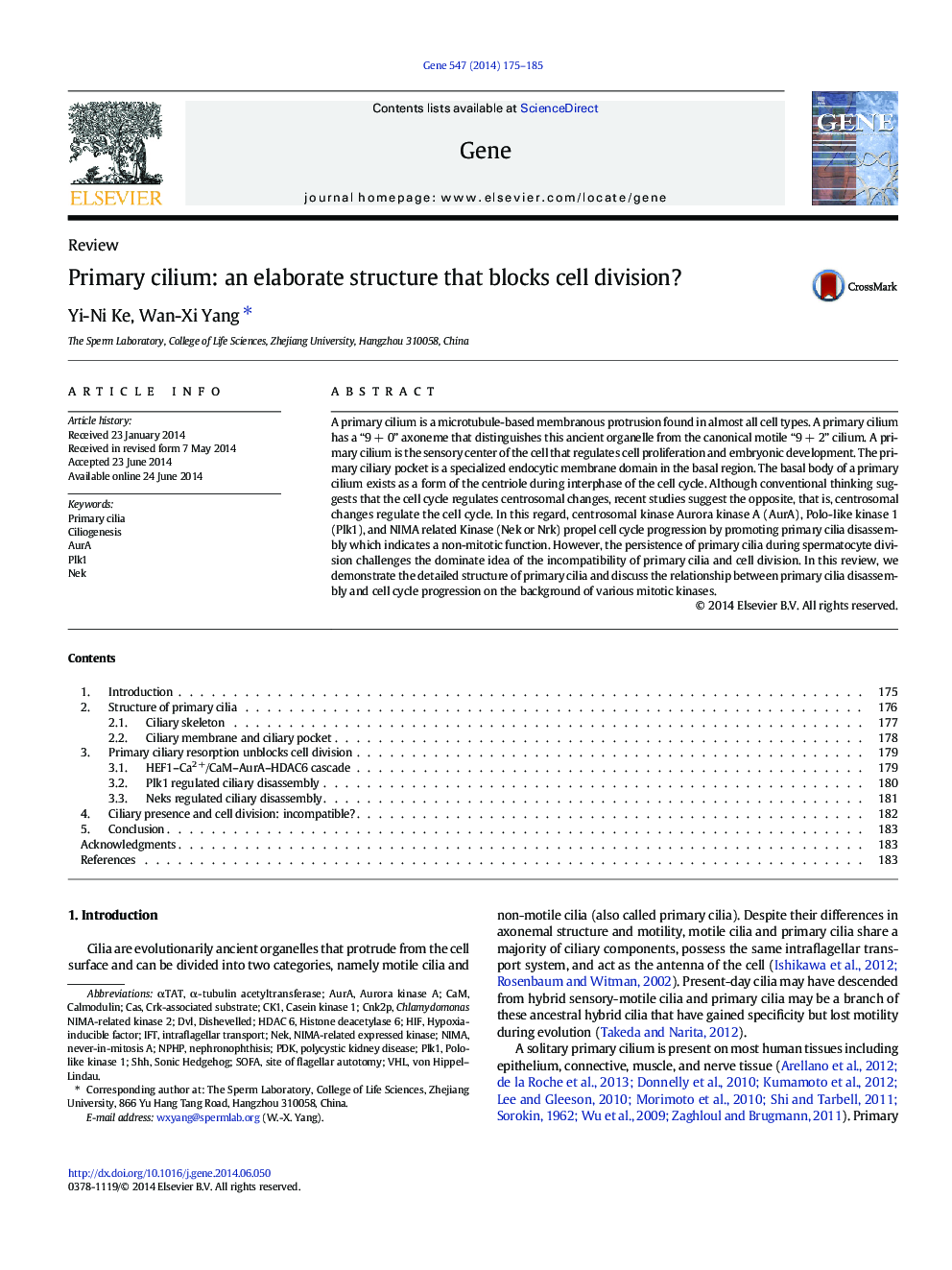| Article ID | Journal | Published Year | Pages | File Type |
|---|---|---|---|---|
| 2816222 | Gene | 2014 | 11 Pages |
•Detailed structures of primary cilia including ciliary pocket are summarized.•Functions of AurA, Plk1 and Neks in ciliary disassembly are reviewed.•Persistence of cilia in diving spermatocytes is discussed.•Relationship between ciliary disassembly and cell cycle is reviewed.
A primary cilium is a microtubule-based membranous protrusion found in almost all cell types. A primary cilium has a “9 + 0” axoneme that distinguishes this ancient organelle from the canonical motile “9 + 2” cilium. A primary cilium is the sensory center of the cell that regulates cell proliferation and embryonic development. The primary ciliary pocket is a specialized endocytic membrane domain in the basal region. The basal body of a primary cilium exists as a form of the centriole during interphase of the cell cycle. Although conventional thinking suggests that the cell cycle regulates centrosomal changes, recent studies suggest the opposite, that is, centrosomal changes regulate the cell cycle. In this regard, centrosomal kinase Aurora kinase A (AurA), Polo-like kinase 1 (Plk1), and NIMA related Kinase (Nek or Nrk) propel cell cycle progression by promoting primary cilia disassembly which indicates a non-mitotic function. However, the persistence of primary cilia during spermatocyte division challenges the dominate idea of the incompatibility of primary cilia and cell division. In this review, we demonstrate the detailed structure of primary cilia and discuss the relationship between primary cilia disassembly and cell cycle progression on the background of various mitotic kinases.
